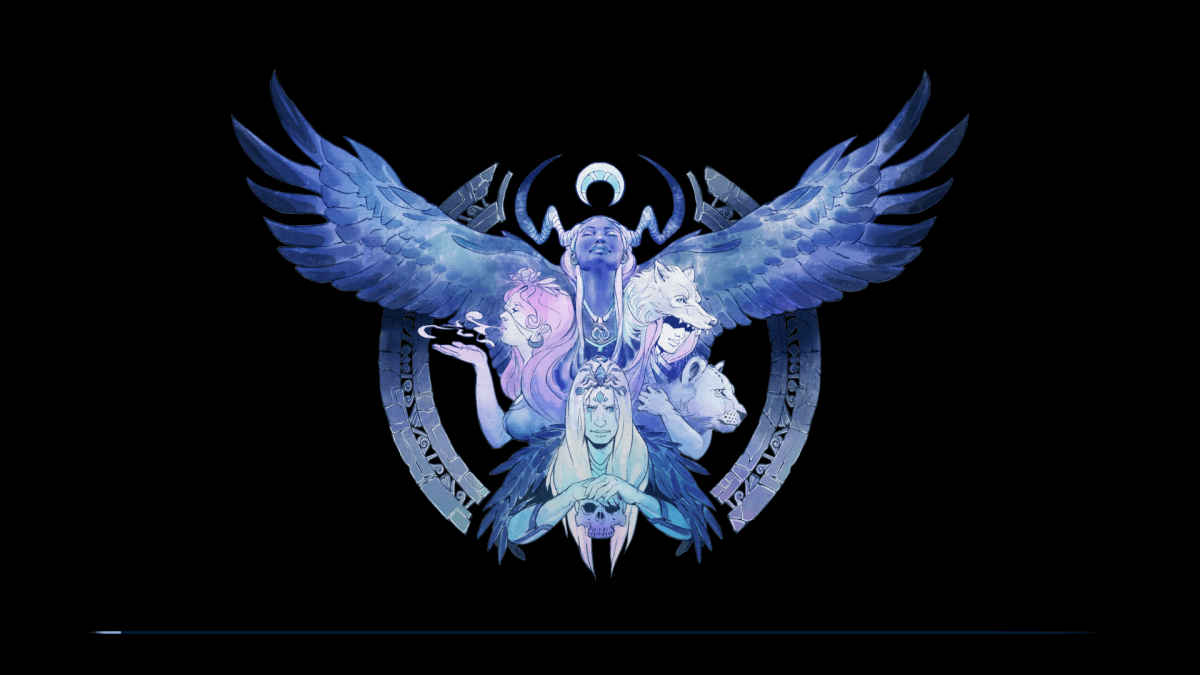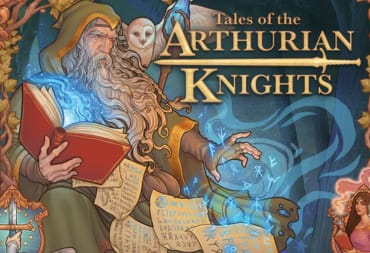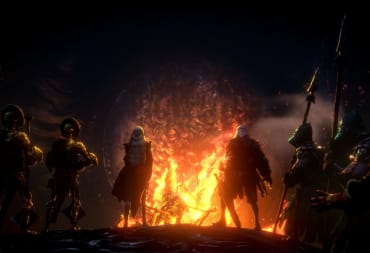What would happen if the moon didn’t rise? Well, probably a lot of bad things that would throw our world into chaos – scientifically speaking. In the world of Moon Hunters, an evil Sun Cult is thought to be the reason why the sacred moon did not rise during a festival as it was expected to. People across the land of Issariah panicked, their goddess inexplicably missing. With only five days to figure out what went wrong, the player (or players) have a hefty task on their hands.
Moon Hunters is an RPG from Kitfox Games where players explore an occult-filled land to solve the mystery of the disappearing moon. Or, at least, that’s the theoretical goal. In Moon Hunters, there are so many places to explore that it’s impossible to see and do everything in the mere five days you're given. This leads to multiple endings ranging from grim to over-the-top.
This delightful pixel art game is, I find, best experienced in multiplayer. I had great fun wandering through the world with my friends time and time again, trying to strike a balance between the overarching task at hand and helping NPCs with their individual gripes. While we occasionally ran into some connection issues, the overall multiplayer experience was solid. I recommend chatting on Discord or some other sort of messenger in order to make life easy when it comes to choosing paths and making decisions, which happens often. While all players must input answers, the player with the highest Charm stat decides what happens.
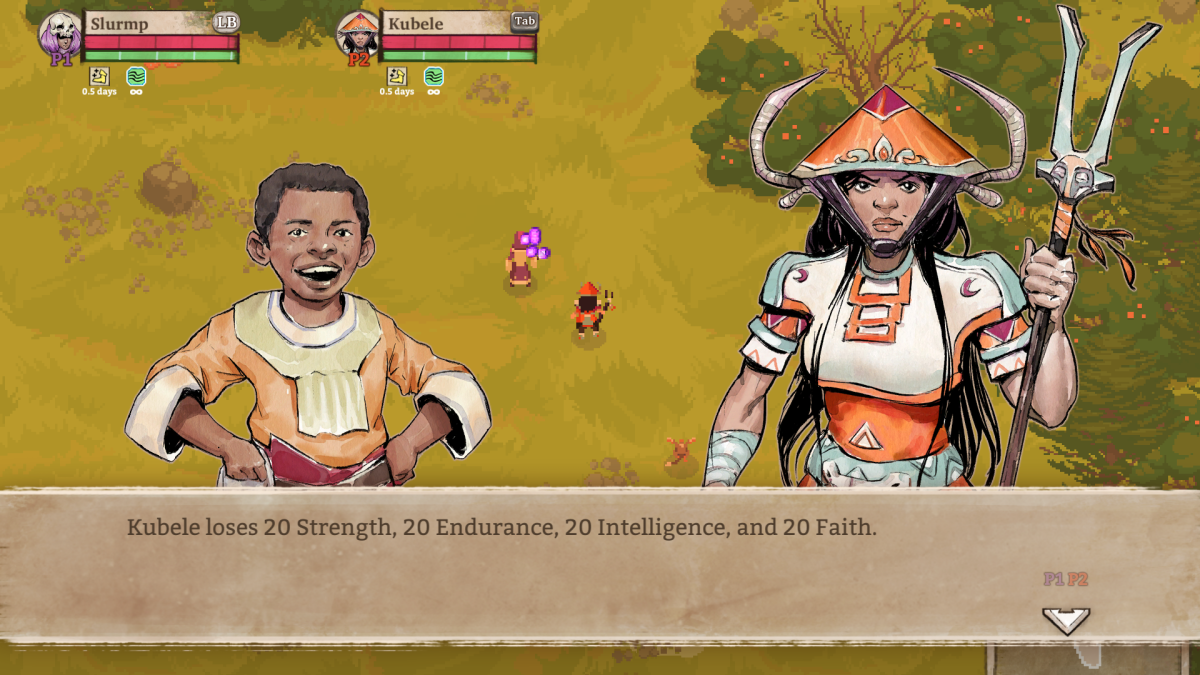
Players start by choosing a class, name, and outfit color for their characters. (Try choosing an entertaining name. That will come into play later.) As expected in a fantasy RPG, there are swordsmen, magic wielders, druids, cultists, and so on. Each has unique abilities to fight off enemies and contribute to the team dynamic. They’ll also come with different stats in their base skills which can be improved in-game. New classes are unlocked through beating the game.
After choosing a starting region and watching a cutscene about the moon’s disappearance, players are sent on their way. We ran through our starting town, smashing pots for opals – the local currency used to buy ability upgrades – and talking to NPCs to earn traits. Depending on your character’s attitude or how they handle situations, they’ll be assigned a relevant trait: brave, foolish, etc. Sometimes, I couldn’t quite follow the logic of how traits were assigned, but for the most part it was intuitive. These different traits make new dialogue options or side quests available.
Before leaving the starting town, one of the NPCs mentioned that her son had run away and asked us to find him. When we got to the world map, there were several new areas we could explore. There was no way of knowing where the boy had run off to. Picking at random, we were unsuccessful in our hunt. The only hints the map gives are telling players which area a merchant is in, or where to find Baba Yaga. Yes, the supernatural forest-woman of Slavic folklore makes an appearance in Moon Hunters.
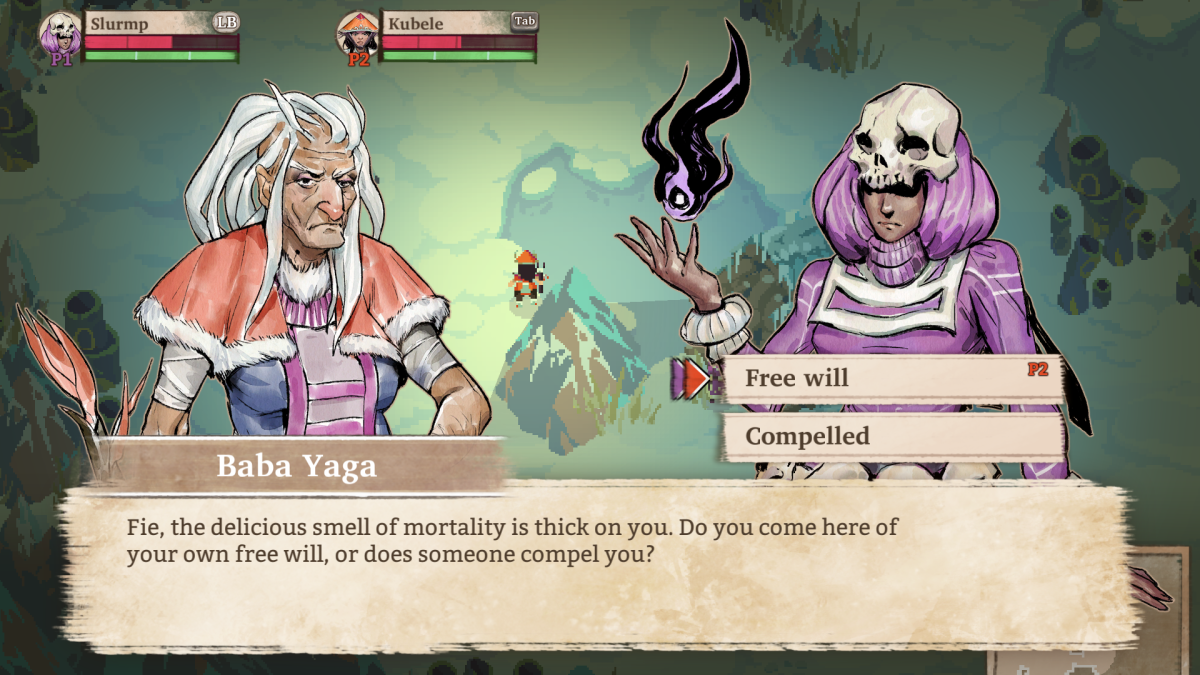
Heading into unknown areas leaves players with a minimap to explore and enemies to battle. You never know who or what you’ll come across in the unexplored regions, but always be on the lookout for more opals and the gem-hungry merchant. Upgrading abilities is the surest path to making your explorations of this world easier. Should someone fall in action, players can revive each other and find health bubbles out in the world as well.
One mechanic I became a fan of was the campsite. Each area has a place to camp for the night, bringing the players a day closer to the endgame and ending their explorations of a given area. Camping allows players to choose what their character does during the evening. Depending on their decisions, they can improve their characters’ stats and possibly get a new trait assigned. It’s a simple way to tinker the game in your favor and can lead to some funny interactions depending on your character’s competence.
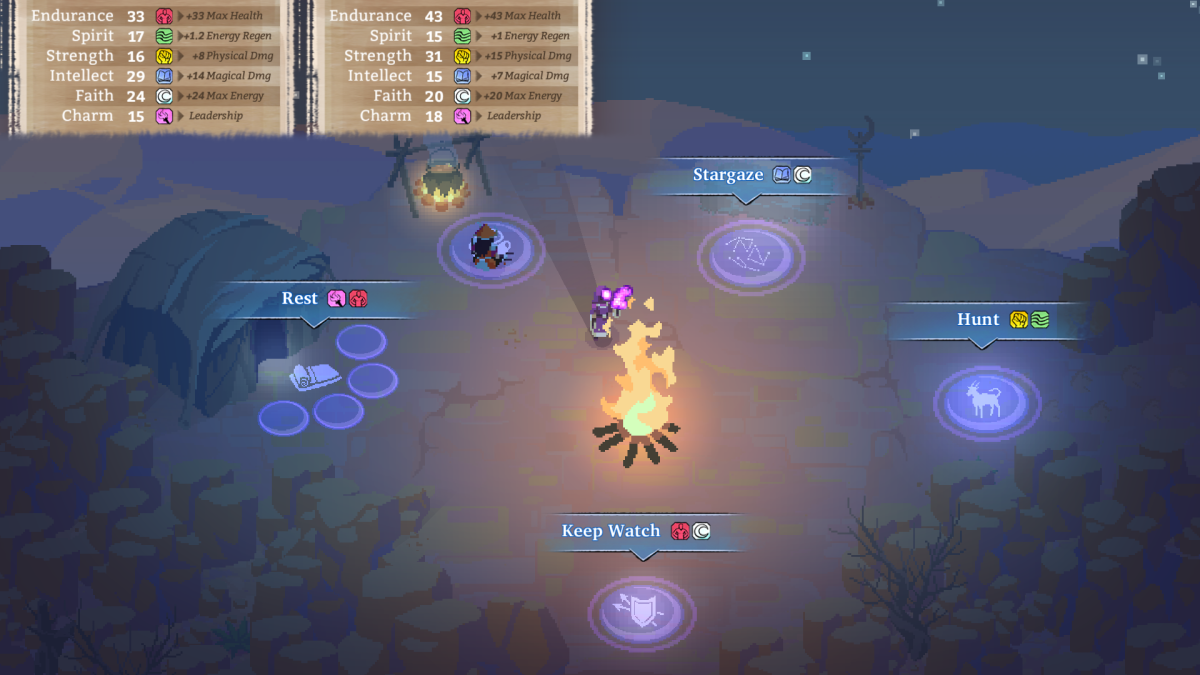
Depending on choices made, places explored, and quests completed, there are a variety of endings players can achieve. By far the funniest one I’ve come across was when my cousin’s character made peace between the common folk and Sun Cult leader by seducing him. They fell in love and lived happily ever after. Sure, we never found the moon, but maybe true love conquers science.
Upon beating the game, the heroes are immortalized as constellations in the sky and more goodies are unlocked. The real endgame treat isn’t apparent until subsequent playthroughs, and here’s where the entertaining character names come into play: heroes of your previous games are remembered as legends in your new ones. Their names will be mentioned by townsfolk in differing ways depending on what kind of traits they ended with. It tickled me to hear tales passed from generation to generation of the confident warrior Slurmp.
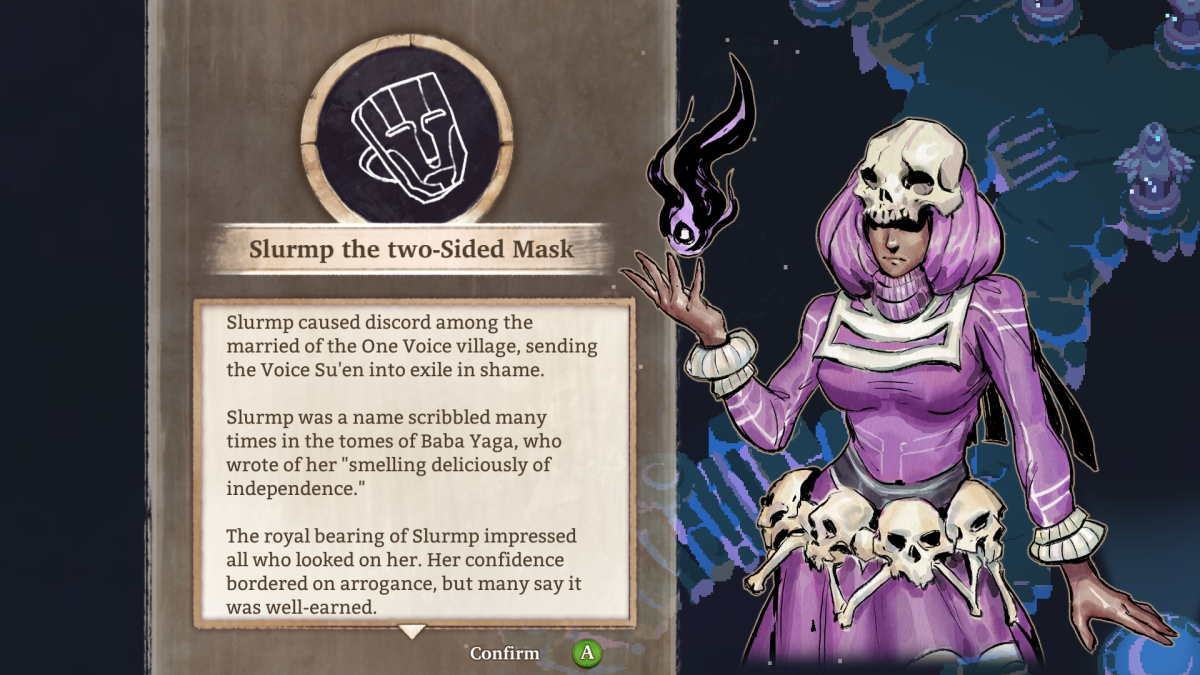
Along with being an entertaining multiplayer experience overall, Moon Hunters has a great soundtrack and some beautiful visuals. Just the opening gives me goosebumps with how stunning the cosmic imagery is, especially as a somber, hymn-like song plays in the background. The pixel art is fantastic and the voice acting is solid. Being a simple roguelike, it may get a bit repetitive eventually; that said, it does have replay value thanks to the different classes, approaches, and endings. In this case, simplicity is by no means a negative.
If you’re looking for a fun, engaging multiplayer game that’s simple enough to pick up immediately and come back to for different flavors from time to time, Moon Hunters is a great fit. Whether you have a dramatic showdown with the Sun Cult, elope with their leader, or encounter some far more reasonable in-between, it’s worth revisiting Issariah several times to see what shenanigans your characters can get into and admire how NPCs immortalize your adventures in their tales.
TechRaptor played Moon Hunters on Steam using a copy purchased by the player.
Have a tip, or want to point out something we missed? Leave a Comment or e-mail us at tips@techraptor.net
